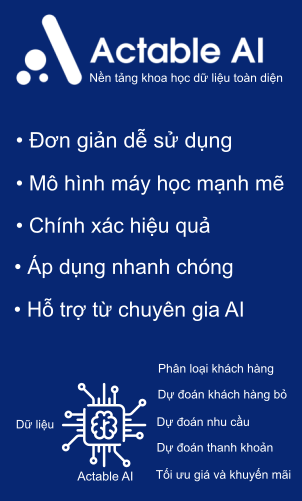Banking products and services more clearly defined
Guidance is very much needed to clarify an Article in the new Law on Credit Institutions regarding the provision of bancassurance.

The Law on Credit Institutions 2024 took effect on July 1, 2024, in which Clause 5 of Article 15 prohibits credit institutions, foreign bank branches, managers, executives, and employees from linking the sale of non-mandatory insurance products with the provision of banking products or services in any form. This represents a novel provision in the Law and currently lacks clear guidance.
Clarity sought
There are diverse views and levels of understanding across different localities, State Bank of Vietnam (SBV) branches, and individual bank branches regarding the definition of “linking” in relation to the sale of non-mandatory insurance products. Consequently, the implementation of bancassurance channels faces substantial difficulties.
“We are still searching for a definitive answer to what constitutes ‘linking’,” said Mr. Nguyen Hong Phong, CEO of the Agricultural Bank Insurance Company (ABIC). “We have consulted with legal experts and engaged in discussions to comprehend the precise meaning, but consensus has not yet been reached. This term significantly impacts insurance operations, and we eagerly await guidance from the SBV on this matter.”
Elsewhere, Ms. Le Thi Quynh Hoa, Deputy CEO of the VietinBank Insurance Corporation (VBI), said it is engaging in ongoing dialogue with experts and representatives from SBV branches to clarify what qualifies as ‘linking’. Does it involve mandatory insurance purchases when borrowing funds, or does offering advisory services also fall under ‘linking’? There is no unified understanding at this stage, resulting in cautious banks temporarily suspending bancassurance activities from July 1, significantly affecting VBI’s sales performance.
“When discussing non-mandatory insurance products with legal experts, they also questioned the comparison with compulsory insurance products,” she added. “Under the Law on Insurance Business 2022, only a few insurance products are mandatory. However, globally, banks often require insurance purchases to safeguard loan transactions.”
Representatives from insurance companies also highlighted the challenges in interpreting Article 15, which prohibits credit institutions and commercial banks from introducing, advising on, or selling insurance. This poses significant challenges for insurance companies, commercial banks, and customers alike.
Lawyer Truong Thanh Duc, an arbitrator at the Vietnam International Arbitration Center, explained that the keywords in Article 15 are “linking” and “non-mandatory”. Linking implies coercion. To determine if linking exists, one should ask how typical loan disbursement conditions relate to non-mandatory insurance products, excluding compulsory insurance.
According to Mr. Duc’s analysis, both linking and non-mandatory must coexist for the prohibition on insurance product sales through banks to apply under Article 15. This means that if insurance is mandatory, it does not fall under this prohibition.
Clause 8 of the Law on Insurance Business defines compulsory insurance as products designed to protect the public interest, the environment, and social safety. This includes civil liability insurance for vehicle owners, mandatory fire and explosion insurance, compulsory insurance in construction projects, and other forms required by law.
“Hence, the current law does not classify insurance for bank loan activities as compulsory,” Mr. Duc clarified, noting that once a law is enacted and effective, compliance should be straightforward if the regulation’s objective is clear. If there is ambiguity, adherence should align with the law’s provisions.
Advice needed
According to Lawyer Nguyen Thanh Ha, Managing Partner at SBLaw, for a comprehensive assessment and understanding of Article 15 it is essential to contextualize it alongside other provisions in the Law on Credit Institutions and relevant insurance business laws. In addition to Clause 5 of Article 15, Articles 113, 119, 124, 126, and 130 of the Law on Credit Institutions also regulate the insurance agency activities of credit institutions, including commercial banks, financial companies, people’s credit funds, and microfinance institutions.
Article 113 specifically addresses commercial banks: “2. Commercial banks may engage in insurance agency activities in compliance with insurance business laws suitable for the scope of insurance agency activities as stipulated by the State Bank Governor”, and similar regulations apply to other types of credit institutions. According to this provision, credit institutions, including commercial banks, are still permitted to conduct insurance agency activities under the current Law on Insurance Business.
Under this Law, credit institutions, including commercial banks, are authorized to carry out all six activities on behalf of insurance companies when acting as insurance agents: advisory, introduction, solicitation, contract arrangement, fee collection, and claims documentation.
“To comprehensively assess the provisions of Decree No. 46/2023/ND-CP, Circular No. 67/2023/TT-BTC, the Law on Insurance Business, and the Law on Credit Institutions regarding Article 15, it is crucial to understand that these were enacted to align with insurance business legal provisions, ensuring transparency, clarity, independence, and voluntary participation of customers in insurance introduction, advisory, and sales activities by credit institution agents,” Mr. Ha noted. “Firstly, when credit institution employees engage in insurance agency activities by introducing, advising, or selling insurance products to customers, they must provide complete and transparent information indicating that these are insurance products of insurance companies, not banking products or services. Secondly, credit institutions must refrain from imposing requirements or conditions on customers regarding insurance participation as a prerequisite for credit approval or the use of banking products or services.”
Mr. Duc noted that while specific guidance documents for Article15 are not strictly necessary according to legal principles, having guidance from the SBV would facilitate market operations.
“If the SBV does not issue guidance documents, only the Standing Committee of the National Assembly has the authority to interpret Article 15,” Mr. Duc clarified. He recommended that if the SBV issues guidance on insurance agency activities through banks, it should specifically enumerate prohibited behavior and similar actions. It could draw upon Circular No. 67/2023/TT-BTC to draft guidance to ensure consistency across legal documents.
Legal experts agree that legal provisions should be stringent to prevent circumvention while also fostering an environment conducive to transparent and legitimate business practices.
Other disputes
In recent times, there has been much discussion regarding banks offering lower interest rates on loans if customers buy insurance, which is seen by some as a form of coercion. If insurance isn’t purchased alongside a loan, the interest rate can be 1-2 per cent higher per annum than if insurance is purchased.
Mr. Ha explained that Article 15 of Circular No. 39/2016/TT-NHNN, stipulates: “The application or non-application of loan collateral is subject to agreement between credit institutions and customers, complying with legal regulations on collateral and related laws.”
“It is clear that securing a loan through insurance or other means isn’t mandatory and depends on the customer’s needs and financial capability, as agreed voluntarily between them and the bank,” he asserted.
Ms. Hoa disagreed with the perception that banks compelling customers to buy insurance by offering lower interest rates is coercive. “When customers purchase insurance, banks categorize them into low-risk groups eligible for reduced interest rates,” she explained. “This practice, known as risk-based pricing, is common in financial markets. Therefore, we urge regulatory bodies to issue guidelines on insurance sales through banks that align with international financial market practices.”
“From a business standpoint, banks are also enterprises and seek risk mitigation tools, including insurance,” said Mr. Phong. “Collateral isn’t the only tool for ensuring debt recovery, especially since handling pledged assets isn’t always straightforward. Moreover, many loans are unsecured. If a bank’s non-performing loan ratio rises, who bears responsibility? This could affect the entire system.”
According to Mr. Ha, the effective and sustainable development of bancassurance requires not only regulatory conditions but also rigorous supervision and enforcement. “The SBV, the Ministry of Finance, and related agencies must collaborate closely to monitor and promptly address violations,” he suggested. “Strong penalties, including fines, activity suspensions, and other legal measures, should deter organizations and individuals from violating laws. Customers must also be educated about their rights to identify and report instances of insurance coercion.”
“Clear and specific regulations are all that’s needed,” said Mr. Tran Hoai An, CEO of the BIDV Insurance Corporation (BIC). “Once regulations clearly state what’s not permitted or prohibited, insurance companies are ready to comply. We eagerly await the SBV’s issuance of guidelines for insurance distribution through banks, specifying prohibitions. Once these are in place, we’ll comply rather than seek loopholes.”



















